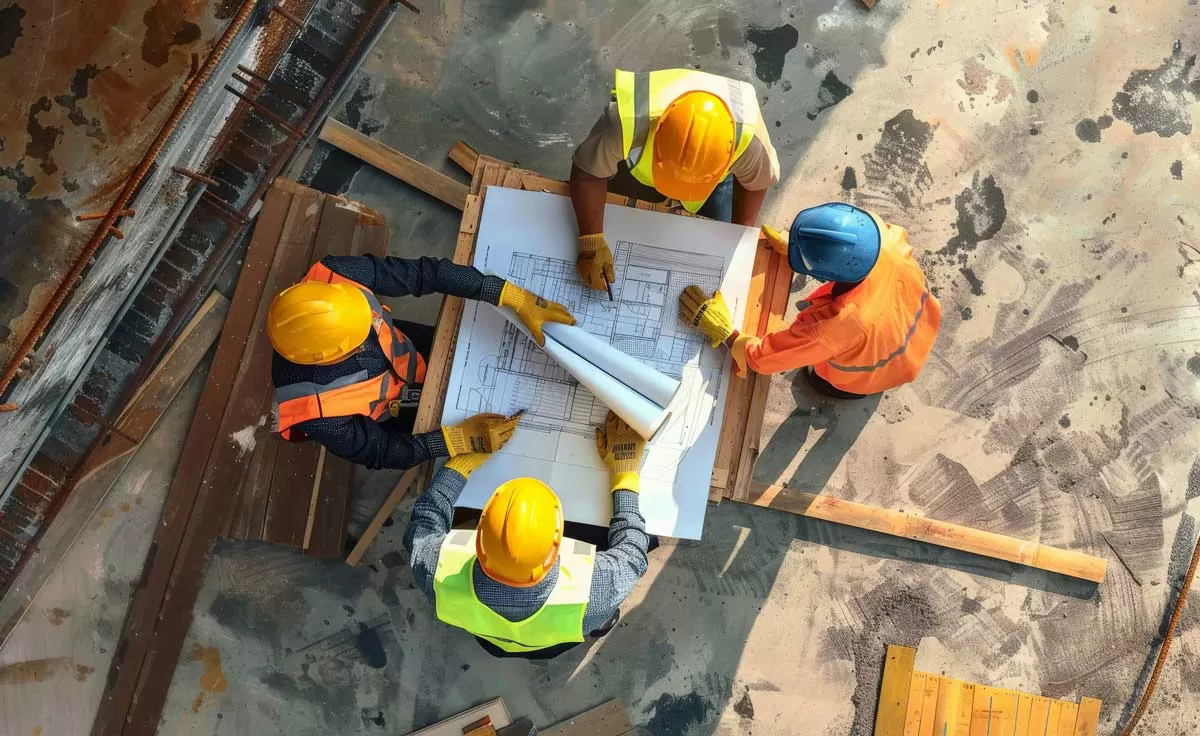With over 37 years of experience in academia and administration, Dr Sushma S Kulkarni, Vice Chancellor, NICMAR University, Pune, has witnessed significant shifts in the construction, infrastructure, real-estate and allied sectors. Speaking to CW, she emphasises how the ongoing digital revolution powered by emerging technologies like AI, IoT and robotics is reshaping these industries. In her view, for future challenges to be met, higher education must evolve accordingly and NICMAR is strategically positioned to address these needs.Industry requirements“As the construction industry rapidly integrates digital technologies such as BIM, AI, IoT and automation, higher education institutions must rise to meet new demands,” she says. “Moreover, with construction being a significant contributor to carbon emissions, a growing emphasis on sustainability is pushing educational institutions to focus on green construction techniques and carbon-neutral initiatives, which is impelling institutions to prioritise these in their curricula with practical, hands-on training for exposure to real-world challenges.”NICMAR’s executive programmes for professionals ensure they stay updated with the latest industry trends and technologies. The curriculum includes advanced software training such as BIM and PVsyst, aligning with emerging trends in sustainable construction and smart city technologies. Over the next five years, the institute is developing new programmes that blend engineering, management, finance and sustainability, aiming to create professionals with a comprehensive understanding of both the economic and environmental impact.As Kulkarni elaborates, “Some key initiatives in line with our motto of ‘Building Nations’ include becoming a hub for research in sustainable infrastructure with projects like those with the Government of Maharashtra and Delhi NCR; strengthening industry connections by working with companies like L&T and MyTek Innovation to drive adoption of efficient construction practices; and expanding partnerships with international universities such as Wentworth Institute of Technology (USA), Loughborough University (UK) and Daniels School of Management (USA), offering student exchanges and global internships to equip the next generation of construction professionals with the knowledge and skills to lead in an evolving industry.”Skill developmentWith regard to the need for skilling in view of the scarcity of skilled manpower, Kulkarni identifies areas such as RMC plant experts, MEP professionals, tunnelling technology experts, Geotechnical professionals, experts in infrastructure finance, ports and airports and 3-D printing.“Completing complex modern projects on time with efficiency, using new skill areas like digitalisation, robotics, automation and solar energy, is in focus,” she points out. “The market wants engineers and techno-managers with versatile skill sets that require expertise in advanced technologies, sustainable practices and safety standards, which is particularly required in construction, urban development and large-scale infrastructure projects. Use of the latest software [BIM, PVsyst, etc] for modelling and simulation, planning and project execution, waste reduction, use of BIM are future areas of skilling and the university lays great emphasis on the development of these skill sets.”Addressing the Government’s plans to train over 2 million youth over five years as outlined in the Union Budget 2023-2024, Kulkarni says, “Recent policy announcements, including Union Budget 2023-24, focus on skilling and workforce development. To enhance these efforts, we must revamp curricula to align with industry advancements and establish joint laboratories with state-of-the-art tools and equipment. The latest software tools should be taught in institutes and a centre of excellence should be developed to develop creativity among students.”Sectoral collaborationsOn bridging the gap between academia and real-world needs, Kulkarni refers to NICMAR’s MoU with L&T and Mytek Innovations, and shares that another MoU with the Adani group is in the pipeline. “L&T’s involvement ensures that the two-year MTech programme is aligned with current industry demands and students gain practical insights into complex project challenges through site visits and interaction with industry leaders,” she elaborates. “Similarly, the collaboration with Mytek encourages entrepreneurial thinking, offering students access to digital tools, project funding and hands-on experience, positioning them to innovate and potentially launch their own ventures. The initiative aims to tackle industry issues like cost overruns and inefficiencies, fostering problem-solving in the sector.”Curriculum’s relevance“Aligning academic programmes with current industry standards is crucial to produce highly employable graduates,” avers Kulkarni. “Continuous curriculum innovation incorporating advanced software tools such as BIM, AI and Visilean creates techno-managers who can navigate the complexities of modern infrastructure projects and exposure to the use of drones and GIS mapping positions students at the forefront of industry advancements.”The importance of research“Research forms the backbone of innovation and growth in the construction and infrastructure sectors,” emphasises Dr Rajni Kant Rajhans, Dean of Research and Development, NICMAR, highlighting the institute’s research-centric approach, which equips students with the analytical skills and innovative thinking required to tackle complex industry challenges. Underscoring the collaborative research efforts between faculty and students as one of NICMAR’s key strengths, he says, “Faculty members who frequently engage in consultancy work for the sector and have deep industry connections provide students with hands-on experience.”Recent industry-sponsored research projects at NICMAR have focused on developing eco-friendly building materials, reducing the carbon footprint, and enhancing water conservation – initiatives that align with the industry’s growing focus on sustainability. Also, many of NICMAR’s research projects have been published in prestigious industry journals and presented at international conferences, offering students and faculty members a platform to showcase their work, opening doors to new career opportunities, and establishing them as thought leaders in the industry.“With over 2,615 students enrolled this year, NICMAR University, Pune, continues to lead the charge in transforming the future of construction and infrastructure education,” concludes Kulkarni. “Through strategic collaborations, curriculum innovation and a steadfast commitment to sustainability, the institute is building the leaders of tomorrow, one graduate at a time.”





















